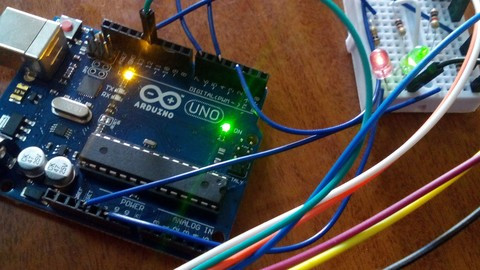Finding the largest of two numbers is one of the basic exercises in C programming. This simple task helps beginners understand how to compare values using conditional statements and teaches the logic behind decision-making in programming. Learning this concept is essential because it forms the foundation for more complex comparisons in future programs, such as finding the largest in an array or determining conditions in real-world applications.

with hands-on learning.
get the skills and confidence to land your next move.
Here, we will write a complete C program to find the largest of two numbers. Each line of the program will be explained in detail, so you understand exactly how it works. We will also discuss common mistakes beginners make and provide tips to write accurate and efficient code.
Using if-else Statements to Find the Largest Number
The most common method to find the largest of two numbers in C is using if-else conditional statements. Here is a complete example:
#include <stdio.h>
int main() {
int num1, num2;
printf("Enter first number: ");
scanf("%d", &num1);
printf("Enter second number: ");
scanf("%d", &num2);
if (num1 > num2) {
printf("%d is the largest number.\n", num1);
} else if (num2 > num1) {
printf("%d is the largest number.\n", num2);
} else {
printf("Both numbers are equal.\n");
}
return 0;
}In this program, the line #include <stdio.h> includes the standard input-output library, allowing the program to use printf() and scanf(). Two integer variables, num1 and num2, are declared to store the numbers entered by the user. The scanf() function reads the values from the user input.
The if statement compares num1 and num2. If num1 is greater, the program prints that it is the largest number. If not, the else if statement checks if num2 is greater and prints it as the largest. If both numbers are equal, the else block executes, printing a message indicating equality. This structure ensures that all possible outcomes are covered correctly.
Using the Conditional (Ternary) Operator
Another way to determine the largest of two numbers is using the ternary operator ?:. This approach is compact and useful when you want shorter code:
#include <stdio.h>
int main() {
int num1, num2, largest;
printf("Enter first number: ");
scanf("%d", &num1);
printf("Enter second number: ");
scanf("%d", &num2);
largest = (num1 > num2) ? num1 : num2;
if (num1 == num2) {
printf("Both numbers are equal.\n");
} else {
printf("%d is the largest number.\n", largest);
}
return 0;
}Here, the ternary operator (num1 > num2) ? num1 : num2 evaluates whether num1 is greater than num2. If true, num1 is assigned to largest; otherwise, num2 is assigned. The subsequent if checks if the numbers are equal and prints an appropriate message. This method reduces the number of lines but is slightly less readable for beginners compared to standard if-else.
Common Beginner Mistakes
Beginners often run into these problems when comparing numbers:
- Forgetting to check for equality, which produces wrong results when the numbers are the same.
- Using a single
ifwithout anelse, which can cause conditions to be evaluated incorrectly. - Confusing
=with==, leading to assignment instead of comparison. - Forgetting to declare variables or reading input incorrectly with
scanf(), which can result in runtime errors.
To avoid these issues, always include equality checks when needed, pair if with else where appropriate, use == for comparisons, and make sure variables are properly declared and input is handled correctly.
FAQs
Q1: Can this program work with floating-point numbers?
Yes. Simply change the variable types from int to float or double. The comparison logic remains the same.
Q2: Why use else if instead of multiple if statements?
Using else if ensures only one block executes, which avoids conflicting outputs. Multiple if statements could print multiple messages if both conditions are checked independently.
Q3: Can the program find the largest of more than two numbers?
For more than two numbers, you can use multiple if-else statements or loops, which will be covered in advanced tutorials.
Q4: Is the ternary operator better than if-else?
For beginners, if-else is more readable and easier to understand. Ternary operators are compact but can be confusing when conditions become complex.
Conclusion
Finding the largest of two numbers is a basic but important exercise in C programming. It teaches comparison operations, logical thinking, and structured coding practices. By mastering this program, beginners gain confidence in writing conditional statements and preparing for more advanced programming challenges. Start practicing with different numbers and try extending the program to handle more numbers to strengthen your C programming skills.
References & Additional Resources
- Kernighan, Brian W., and Dennis M. Ritchie. The C Programming Language. 2nd Edition, Prentice Hall, 1988.
- GeeksforGeeks: Find Largest of Two Numbers – Example-based tutorial for beginners.
- TutorialsPoint: C if-else Statements – Guide to decision making in C.
- Programiz: Beginner C Programs – Collection of beginner-friendly examples.







